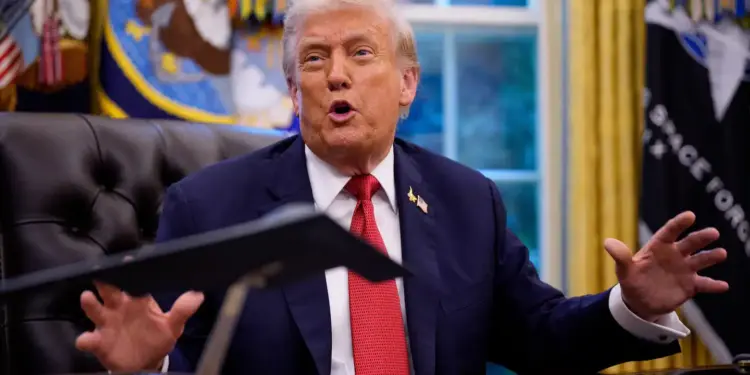The unexpected announcement of the President of the United States, Donald Trump, according to which he “will not allow Israel to annex the occupied West Bank,” caused a shock wave on the diplomatic scene, arousing reactions ranging from the prudence of analysts to open confrontation with the ultra-nationalist wing of the Israeli government.
Skepticism and prudence among analysts
One of the most immediate reactions is a deep skepticism As for the implementation of this threat, given the history of the American president and the past relationship between the United States and Israel.
- Doubt about concretization: Analysts like Mouin Rabbani qualified the declaration of “positive”, but immediately expressed doubts that Mr. Trump “would hold his promises”, noting that it is risky to attach value to the words of the American leader. The central question is: what concrete measures would the United States take to block an annexation?
- History of impunity: The analyst Elmasry recalled that Washington has often reprimanded Israel in the past for his actionsbefore “let Israel do what he wants”, citing the example of Rafah’s offensive that the previous administration had said he wanted to prevent.
- An “academic” question: For some experts, the question of formal annexation has become partly “Academic”because “Israel already exercises control de facto on the West Bank ”through its military occupation and the continuous expansion of the colonies.
Open conflict with the Israeli far right
Trump’s declaration places his administration in “Collision situation” direct with Israeli Prime Minister Benjamin Netanyahu and far -right members of his government.
Arabic pressure and international support
Donald Trump’s position seems to be the direct result of a Intense diplomatic pressureespecially from leaders of the Arab world.
- Requirements of Muslim leaders: Shortly before his announcement, Trump had met on the sidelines of the UN General Assembly the leaders of several Arab and Muslim states (Saudi Arabia, Qatar, United Arab Emirates, Egypt, Jordan, Turkiye, Indonesia and Pakistan). The latter would have “asked the American president of guarantees Against the annexation ”of the West Bank.
- European red line: Mr. Trump’s position is close to that of the international community. The entourage of French president Emmanuel Macron also described the annexation of the West Bank of “Clear red line”stressing that it “would most seriously compromise” the prospect of a solution to two states.
- Context of international law: This position also occurs after the judgment of the International Court of Justice (CIJ) in July 2024, which judged the illegal Israeli colonies and demanded their dismantling.
Donald Trump’s declaration marks a notable change in American rhetoric, deviating from the unconditional support that the Israeli far right hoped. It opens up a period of uncertainty where the credibility of the president will be judged not on his words, but on actions that he will undertake to slow down the territorial ambitions of Israel.
Read also: Washington Post: a secret Trump plan for Gaza arouses indignation








